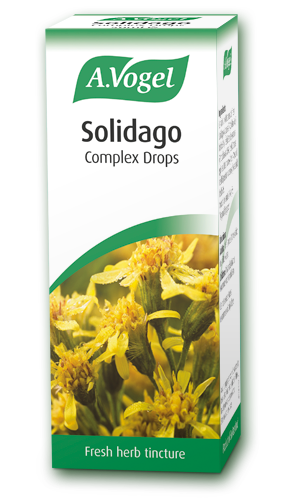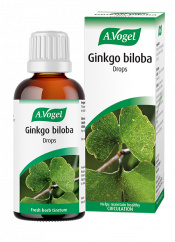1. Eat less salt
A leading cause of fluid retention is salt, as eating too much can disrupt the delicate balance of fluid and minerals in the body. Our kidneys play a key role in maintaining this balance, and can be easily influenced by excess salt.
In the past, our diets contained very little salt, so our kidneys are programmed to hold onto salt in order to provide our bodies with enough sodium. However, packaged and processed foods which are so readily available in supermarkets these days are packed with salt, meaning that our intake is a lot higher than it used to be. Regardless, our kidneys are still inclined to conserve sodium even when it is in abundance.
When we eat lots of salt, the balance of sodium and potassium within our cells is altered. Ideally, we should have more sodium outside of our cells than we do inside, but eating too much salt means that the opposite happens - more sodium enters the cells and less remains outside. As a result, excess fluid also enters the cells in order to dilute the high concentration of sodium, which means our cells swell up and become bloated – hence, fluid retention.

What is more, when this process happens, our kidneys realise that there is not enough sodium remaining outside of the cells, and a signal is sent to our brain to crave even more salt! Plus, eventually our taste buds become overwhelmed by all of this salt and shut themselves off – meaning that we need an even bigger dose to hit those salt receptors.
Needless to say, this will lead to a vicious cycle repeating itself again and again. By reducing our salt intake, we can ease fluid retention and avoid our cells becoming bloated and swollen. Cooking fresh foods at home and avoiding junk foods, takeaways and processed foods will help, plus you could try our Herbamare Low Sodium seasoning as a replacement when cooking.
2. Drink more water
It may seem counter-productive to drink more water when your body is already holding onto excess liquid, but this is actually one of the most effective ways you can reduce your fluid retention!
When certain resources are in short supply, your body will stockpile as much as it can in order to avoid running out, and fluid retention is a prime example of this process. When your kidneys recognise that there are low levels of water in the blood (as a result of swollen cells or not drinking enough) they will conserve as much water as they can and avoid expelling water through urine unnecessarily.
This means that you may see unwanted bloating, and you could be more prone to UTIs and cystitis since your kidneys aren’t getting rid of waste products at a sufficient rate, due to the lack of urine. Drinking plenty of water will help to trigger the release of urine and flush out toxins and excess water as the kidneys register that there is enough water to keep your body ticking over.
My Top Tip: Solidago is a traditional remedy used to support the function of the kidneys to help flush out toxins and maintain fluid balance. Take 10-15 drops in a little water, 3 times daily. Solidago is a traditional remedy used to support the function of the kidneys to help flush out toxins and maintain fluid balance. Take 10-15 drops in a little water, 3 times daily.
|
3. Up your potassium levels
Back to our balance of minerals - contrary to salt, we require a high volume of potassium inside our cells and a low volume outside our cells in the intercellular fluid. When this delicate balance is disrupted by eating too much salt or too little potassium, our kidneys become overwhelmed and can actually excrete even more potassium through urination, as it is recognised as waste!
So, unfortunately, not only do our diets lack potassium in general, but the kidneys also excrete potassium when salt levels are high. This is because, in the past, our diets were rich in potassium from fresh roots, fruits and vegetables so our kidneys did not have to work hard to maintain a healthy balance of potassium. Nowadays, many of us tend to eat more packaged foods and less fresh wholefoods, so we may need to up our intake of foods such as sweet potatoes, bananas and avocados in order to keep our potassium levels topped up!
Therefore, even if we aren’t consuming excessive amounts of salt, if we don’t consume enough potassium then then this can also throw our fluid and mineral balance out of kilter. Our kidneys can become overwhelmed and this is when things go wrong – queue the fluid retention.
So, a combination of eating less salt and consuming more potassium can help to ease fluid retention and reduce your chances of suffering in future by supporting your kidneys’ ability to regulate fluid levels. Balance Mineral Drink is a great way to boost your potassium levels, and also contains a sensible dose of vitamin D, magnesium and zinc!
4. Try drinking Golden Rod Tea
Along with upping your daily intake of water to flush out toxins, you can try Golden Rod Tea. This contains a gentle blend of herbs, including Solidago (Golden Rod), which is a traditional herbal remedy and can help to support the function of the kidneys.
Supporting the health of your kidneys can help to improve their function in filtering excess water and, thus, help to reduce fluid retention.
Our Golden Rod Tea also has extracts of Birch, Horsetail and Wild Pansy which contain flavonoids. As we know, flavonoids help to tone capillaries and improve blood flow, so this blend of herbs can also help to contribute to healthy circulation in general.
When should you see a doctor?
Mild or temporary fluid retention can be caused by common factors such as standing or walking for a long time.
However, if you experience severe or persistent swelling in your feet and ankles, or if you experience other symptoms alongside sudden fluid retention, then you should visit your doctor as this could indicate that something more serious is at play.









